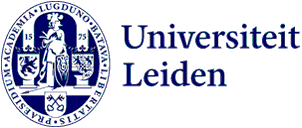
Going forward with an alternative Humanities Campus
In the past months of the coronavirus crisis, work continued steadily on constructing the Humanities Campus. The Arsenaal has been completed. Colleagues have moved to the Reuvens and Huizinga buildings, and the South Cluster is ready for the renovation to start. And now we have suddenly had to stop.
The residents of the Doelen complex have rejected the offered relocation options. De Sleutels, the housing association, therefore decided to exit the partnership with the City Council and the University. Leiden University and Leiden City Council are now going to create a new plan for constructing an alternative Humanities Campus in the city centre, which will not involve a compulsory purchase procedure for the Doelen residential complex. In other words: we will not be able to use the land of the Doelen complex for constructing the Humanities Campus.
This is a setback for the Faculty and Leiden University in developing the Humanities Campus, which we need to resolve very soon. We are already working intensively on an alternative plan for the development of a sustainable Humanities Campus, again based on the principles of community feeling, an attractive study and work environment, state-of-the-art teaching rooms and lecture halls, and future-proof facilities. We expect to know more about the alternative plan by the beginning of 2022. What do we already know? The South Cluster renovation will go ahead as planned and will start as soon as possible. The North Cluster will probably be adjusted to the alternative plan. In this alternative plan, the Lipsius Building will still be replaced by new construction, there will be a central square and the Campus will link up with the Singelpark route. In contrast to the earlier plan, the Huizinga Building will also be involved in the new plan.
Preconditions for the alternative Humanities Campus
As we develop the new plan, we will incorporate the changing preferences of our staff members as a result of the coronavirus crisis (such as the greater emphasis on working and holding meetings from home or in hybrid format). The Executive Board has also asked us to apply the new workspace norm, to ensure that the now limited space will be used efficiently. Workshops about the new workspace norm were held in the spring, with a small delegation from the Faculty. At the time, it was said that a decision about the workspace norm would be taken later, but we are now forced by circumstances to introduce this norm already.
The Humanities Campus as an attractive meeting and work environment
The Humanities Campus concept was developed with a specific vision. The staff of the Faculty of Humanities and the institutes are currently dispersed across several buildings, many of which are outdated, with high maintenance costs and high average costs per workspace per year. The vision for the Humanities Campus is based on an inspiring, healthy and sustainable work and study environment with state-of-the-art facilities and low operating costs. The Campus will encourage more interactions and connections among students and staff, and also collaboration across disciplines. This vision will continue to guide the further development of the alternative Humanities Campus.
Information session and meeting 21 September (CHANGE IN LOCATION)
We will organise a meeting on Thursday 21 September for all colleagues of our Faculty about this decision at the Heinsius room (University Library, second floor). Martijn Ridderbos (Vice-Chairman of the Executive Board) and Mark Rutgers (Dean of the Faculty Humanities) will explain the decision and answer questions. Everyone who would like to attend the meeting or wants to follow the livestream is invited to sign up. The spoken language at the meeting will be Dutch.
Sign up for the information meetingIn the coming period we will inform and engage our colleagues as much as possible via the various advisory bodies.
If you have any questions, please send an email to hc-info@hum.leidenuniv.nl.
